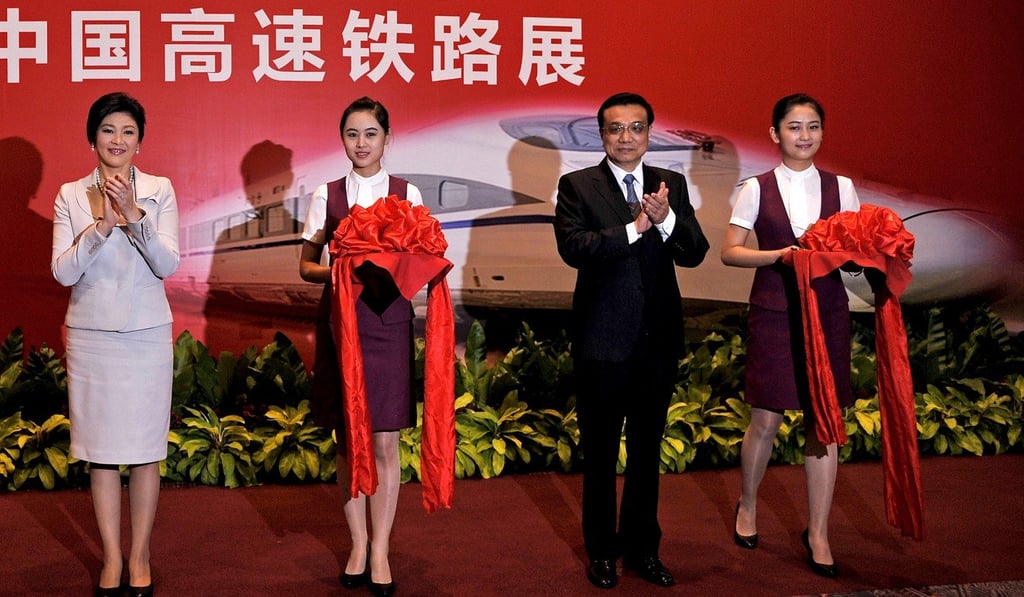Advertisement
China wants to fund Thailand’s US$12 billion high-speed railway – but is the kingdom on track for more debt than it can handle?
- The Export-Import Bank of China has offered Thailand a low-interest loan for construction of a belt and road project linking the country with Kunming and Laos
- But repayment is just one concern, as analysts are uncertain Bangkok will ever turn a profit from the project
4-MIN READ4-MIN

Despite Thailand’s vow to rely on domestic funding as it expands its network of high-speed railways, it could soon accept the offer of a low-interest loan from the Export-Import Bank of China (CEXIM) – raising concerns about whether the country is on the verge of falling into a debt trap.
A memorandum of cooperation between China, Laos and Thailand will be signed during the Belt and Road Forum, which runs from Thursday to Saturday, cementing a partnership in the Belt and Road Initiative’s pan-Asia rail project that looks to reach the Southeast Asian market via Kunming, in China’s Yunnan province.
Thailand recently began construction on a phase of its high-speed railway that links its northeastern region to Kunming via Laos. The route, the first high-speed rail project in Thailand and Laos, is seen as a potential channel for China to transport goods to South Asia, Southeast Asia and the Greater Mekong Subregion (GMS), as well as the Malay Peninsula.
Advertisement
But as negotiations and construction progress, concerns are mounting over how the two Southeast Asian countries can take full advantage of the route’s promised economic potential, as well as how to navigate the alleged debt-laden diplomacy in Beijing’s vision to revive the historical Silk Road.

Advertisement
In January, the Thai government revealed that CEXIM had offered a 2.3 per cent interest rate for loans, better than the average of 2.86 per cent extended by domestic financial institutions.
Advertisement
Select Voice
Select Speed
1.00x